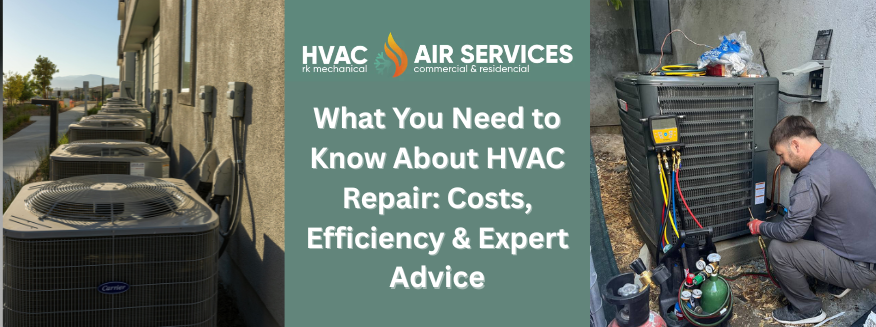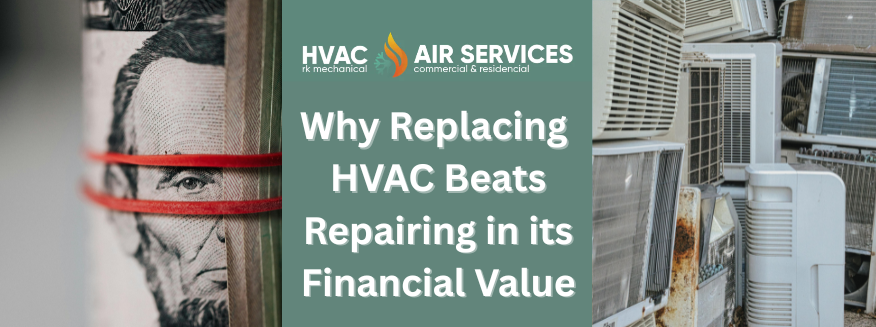Are you considering upgrading to electrical heat pump for your home in Sacramento County or the surrounding areas? Heat pumps are an efficient and eco-friendly way to heat and cool your home, but understanding the installation costs is crucial to making an informed decision. In this comprehensive guide, we’ll dive deep into the factors that influence heat pump installation costs and provide you with valuable insights to help you budget for this important home improvement project.
What is a Heat Pump?
A heat pump is a versatile HVAC system that can both heat and cool your home by transferring heat from one place to another. Unlike traditional heating systems that generate heat, heat pumps move existing heat, making them more energy-efficient and environmentally friendly. Heat pumps can replace both your furnace and air conditioner, providing year-round comfort with a single system. The installation process of a heat pump is a key step in ensuring its efficiency.
Factors Affecting Heat Pump Installation Cost
1. Type of Heat Pump
The type of heat pump you choose will significantly impact the installation cost. Here are the main types and their average costs:
- Air-Source Heat Pumps: These are the most common and cost between $2,000 and $5,500 for the unit and $1,300 to $2,000 for installation.
- Geothermal Heat Pumps: These are more expensive, with unit costs ranging from $3,000 to $6,000 and installation costs between $10,000 and $30,000.
- Ductless Mini-Split Heat Pumps: These are suitable for homes without existing ductwork and cost between $1,000 and $3,500 for the unit and $500 to $1,500 for such heat pump installation.
- Gas-Fired Heat Pumps: These are less common and cost between $3,000 and $6,000 for the unit and $1,300 to $2,000 for installation.
2. Size and Capacity
The size and capacity of the heat pump will also affect the cost. Heat pumps are measured in tons, with each ton providing about 12,000 BTUs of cooling capacity. Here’s a breakdown of average costs by size:
- 2-Ton Heat Pump: Suitable for homes up to 1,000 square feet, costing between $3,500 and $5,500.
- 3-Ton Heat Pump: Suitable for homes up to 2,000 square feet, costing between $3,900 and $6,200.
- 4-Ton Heat Pump: Suitable for homes up to 3,000 square feet, costing between $4,000 and $7,300.
- 5-Ton Heat Pump: Suitable for homes up to 3,500 square feet, costing between $4,500 and $8,800. Understanding the capacity is important before doing a heat pump installation.
3. Efficiency Rating (SEER)
The Seasonal Energy Efficiency Ratio (SEER) measures the efficiency of the heat pump. Higher SEER ratings indicate greater efficiency but also higher costs. Here’s a breakdown of average costs by SEER rating:
- 14 SEER: $1,600 to $4,900.
- 15 SEER: $1,800 to $5,900.
- 16 SEER: $2,400 to $6,200.
- 18 SEER: $2,900 to $6,700.
- 20 SEER: $3,600 to $9,500.
4. Ductwork Installation
If your home doesn’t have existing ductwork, you’ll need to install it, which can add to the overall cost. Ductwork installation typically costs between $1,300 and $2,000.
5. Labor Costs
Labor costs can vary depending on the complexity of the installation and the region. In Sacramento County and surrounding areas, labor costs for heat pump installation typically range from $500 to $2,000.
Average Heat Pump Installation Cost and Budgeting Tips
The average cost to install a heat pump in Sacramento County and surrounding areas is around $6,080, with a typical range of $4,247 to $7,930. However, costs can vary widely based on the factors mentioned above. Here are some budgeting tips to help you plan for the installation:
- Get Multiple Quotes: Contact several HVAC companies to get quotes and compare prices.
- Consider Financing Options: Some HVAC companies offer financing options to help spread out the cost over time for heat pump installations.
- Check for Rebates and Incentives: Look for federal, state, and local rebates and incentives for energy-efficient heat pump installations.
- Plan for Unexpected Costs: Set aside a contingency fund for any unexpected expenses that may arise during the installation.
Conclusion
Switching to a heat pump can be a smart investment for your home, providing energy savings and environmental benefits. By understanding the factors that influence Heat Pump Installation Cost and planning accordingly, you can make a smooth and informed transition. If you have any questions about heat pump installation or need further assistance, feel free to reach out to your local HVAC professionals.





































